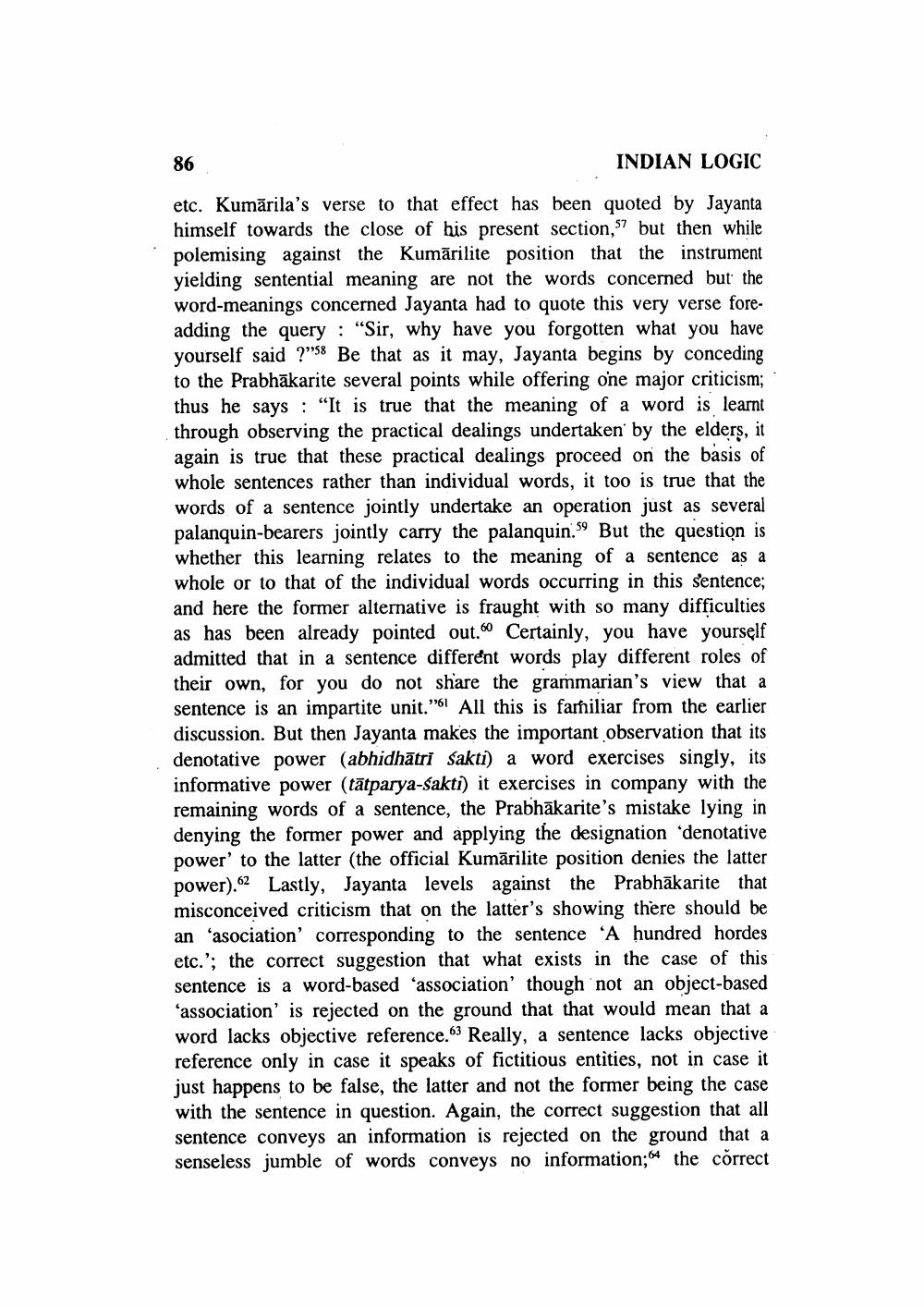________________
86
INDIAN LOGIC
etc. Kumārila's verse to that effect has been quoted by Jayanta himself towards the close of his present section, but then while polemising against the Kumārilite position that the instrument yielding sentential meaning are not the words concerned but the word-meanings concerned Jayanta had to quote this very verse foreadding the query : “Sir, why have you forgotten what you have yourself said ?"s8 Be that as it may, Jayanta begins by conceding to the Prabhākarite several points while offering one major criticism; thus he says: “It is true that the meaning of a word is learnt through observing the practical dealings undertaken by the elders, it again is true that these practical dealings proceed on the basis of whole sentences rather than individual words, it too is true that the words of a sentence jointly undertake an operation just as several palanquin-bearers jointly carry the palanquin.9 But the question is whether this learning relates to the meaning of a sentence as a whole or to that of the individual words occurring in this sentence; and here the former alternative is fraught with so many difficulties as has been already pointed out. Certainly, you have yourself admitted that in a sentence different words play different roles of their own, for you do not share the grammarian's view that a sentence is an impartite unit.61 All this is familiar from the earlier discussion. But then Jayanta makes the important observation that its denotative power (abhidhātri sakti) a word exercises singly, its informative power (tātparya-Sakti) it exercises in company with the remaining words of a sentence, the Prabhākarite's mistake lying in denying the former power and applying the designation denotative power to the latter (the official Kumārilite position denies the latter power).62 Lastly, Jayanta levels against the Prabhākarite that misconceived criticism that on the latter's showing there should be an'asociation' corresponding to the sentence 'A hundred hordes etc.'; the correct suggestion that what exists in the case of this sentence is a word-based 'association' though not an object-based 'association' is rejected on the ground that that would mean that a word lacks objective reference.63 Really, a sentence lacks objective reference only in case it speaks of fictitious entities, not in case it just happens to be false, the latter and not the former being the case with the sentence in question. Again, the correct suggestion that all sentence conveys an information is rejected on the ground that a senseless jumble of words conveys no information; 64 the correct




